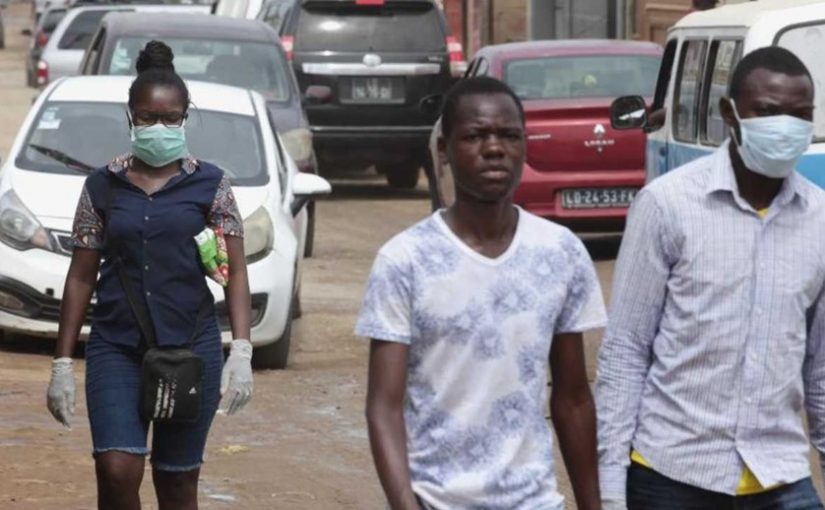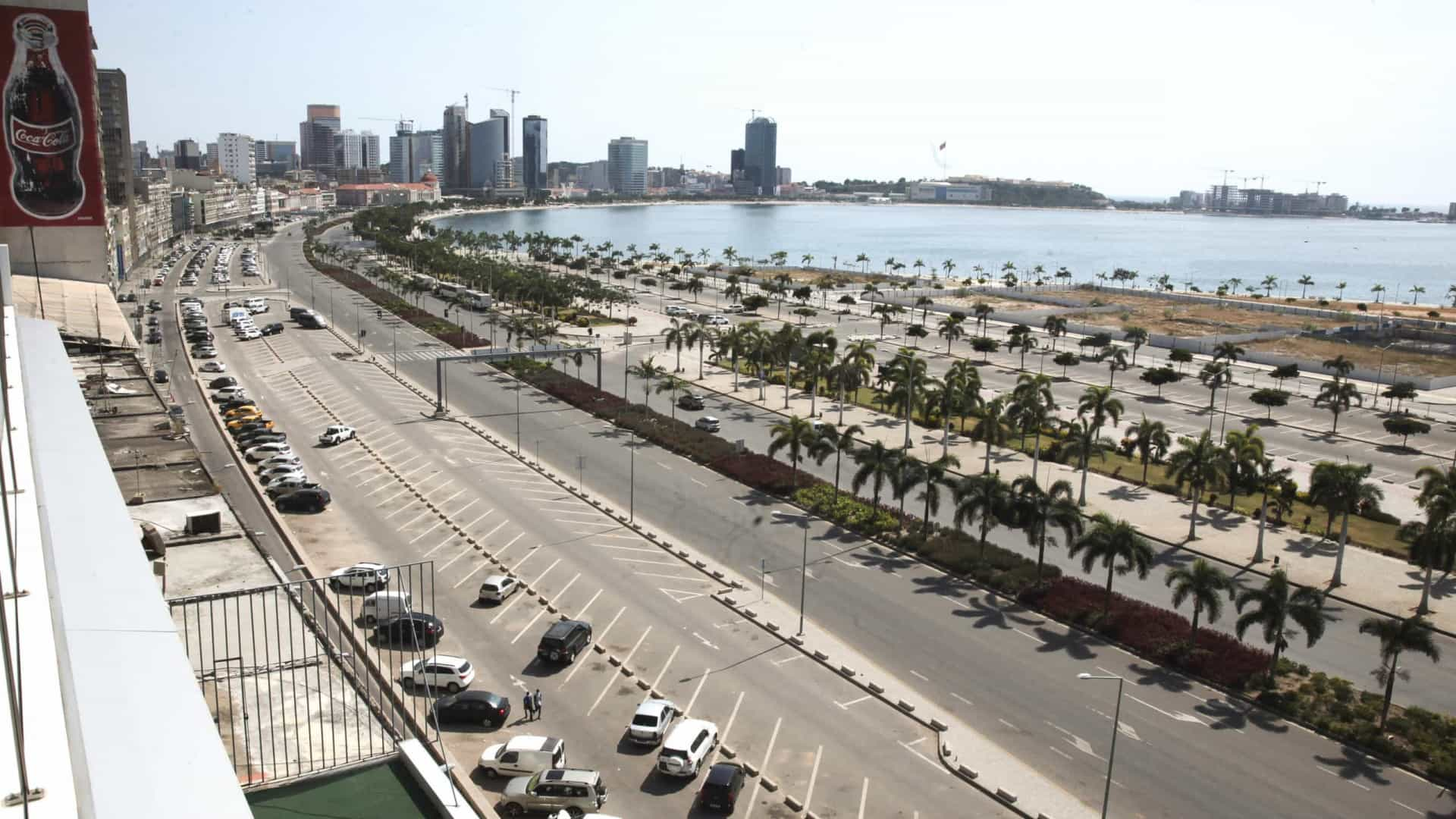US imposes sanctions on Brazilian high court judge
Angola: Police, military presence as locals struggle to survive during emergency

Photo: Record
On the fourth day of the state of emergency declared in Angola because of the Covid-19 epidemic, the presence of police and the military is felt in the capital, Luanda, but many citizens can still be seen on the streets, saying that they do not have the option of observing the lockdown.
There are two ‘Luandas’: the urban one, where there has been a visible reduction in the flow of cars and people; the other, suburban one, where crowds of people can still be seen trying to maintain their routines, despite the measures decreed by the government to contain the spread of the new coronavirus.

While in urban Luanda residents appear to accept quarantine and social isolation with relative calm, in the rest of the city, where informal commerce dominates, most people live in ‘musseques’ (shanty towns) and transport is by collective taxis known as ‘candongueiros’, the mood is one of regret and indignation at the lack of alternatives.
Today, many Luandans must walk long distances for lack of taxis, due to new rules that require more distance between people, so restricting the taxis to one-third of their usual capacity.
Moisés Lucas, 21, who makes a living shining shoes, is waiting for a taxi to work, in a queue with several dozen other people waiting for transport on Avenida Deolinda Rodrigyes, one of the city’s busiest.
“We’re not getting anything done, it’s too hard to go to work,” he says. “Fifteen days is a lot.”
Alberto Neto, too, despairs at the fact that it takes “two or three hours” to get home by taxi after visiting an aunt. “It is too much, this country is already very poor, it does not have capacity to help the people who are in this crisis,” he complains.
“These people don’t work, they live from ‘zunga’ [selling on the streets], they have children,” he says. “The government can’t do anything for these people, how is it going to prohibit them from moving around?”
Neto says he had no alternative but to be out and about because he provides the only support for his elderly aunt, who lives alone and has “no one to look after her.”
José Domingos, a security guard, has been trying to get to work for three hours now. “The police are doing their job, but the population is not doing their job, I don’t know what’s going on,” he says.
Despite some crowds, especially around ATMs and outlets where bottled gas is sold, the state of emergency is fairly evident: some traders show that they are ready to comply with the rules by posting at the entrance: “We are quarantined, we are not receiving anyone” and there are orderly queues outside some bakeries and other traders.
Police are now being backed up by members of the armed forces, who the government has said are in “combat readiness until the end of the state of emergency” at midnight on 11 April: there are men in uniform everywhere.
Many citizens are asked to show identity documents and other credentials at police checkpoints that are set up at several points around to the city, with entry and exit times.
At the entrance to some neighbourhoods, such as Bita, where a group of policemen controls the passage of vehicles, an officer with a more threatening air is hitting cars that try to drive through, in an attempt to dissuade those who want to leave.
As you enter more remote – and poorer – parts of the centre, there is a growing proximity between people.
The Mercado do 30, a giant open market in the municipality of Viana, is officially closed to the public, but some traders are still trying to flog their wares.
Many have been forced to set up shop a little further on an open-air site that is even less hygienic than the market itself, resulting in a chaotic mass of people, fruit, vegetables and pieces of meat buzzing with flies.
The traders are angry and raise their voices: they all want to be heard and say that they have been driven off by the police.
Constança João Calombi said she came here to shop for food but “it’s hard” to do so.
“We left the village on foot to do the shopping, we don’t know what’s going on, they gave us until one p.m. to come and buy food, but we’re can’t get it, it’s a mess,” she explains.
Margarida Francisco Barroso, a flour vendor, is also very critical of the authorities: “We were supposed to [be able to] sell from six a.m. to one p.m.; the government could at least make it easier.”
She said that the police “wouldn’t let [traders] sell” their wares and that they had to find alternative sites, scattering themselves around, in order to sell and “so as not to spoil” their products.
Lusa sought to know why the authorities closed the Mercado do 30 despite the fact that under the state of emergency such informal markets were to be allowed to function during the morning.
“Orders from above,” said an official who asked not to be identified.
“There was disobedience,” said another official who was on the scene. “People did not comply [with the rules] and they decided to close.”
Despite checks at the provincial borders, goods are continuing to coming into Luanda.
Near Benfica, where a highway leads to the southern provinces, a lorry driver unloads his load of tomatoes, newly arrived from Namibe, after two days of travel.
Josefa António has come to stock up and she, too, expresses dissatisfaction with the government measures.
“I work here in the market, from which I earn my daily bread,” she says. “Staying at home for fifteen days without being able to sell, I don’t know how I’ll survive.”
She tells us that yesterday police stopped her from coming through, even though they said the market would operate between 6 a.m. and 1 p.m.
“It is very complicated: not everyone works in a company, we depend on the market,” she lamented, complaining about the high cost of soap and water, which means not everyone can afford to protect themselves against the new coronavirus responsible for Covid-19.
In Angola two people have so far died of the disease, from a cumulative total of seven confirmed infections.













Leave a Reply
Be the First to Comment!
You must be logged in to post a comment.
You must be logged in to post a comment.